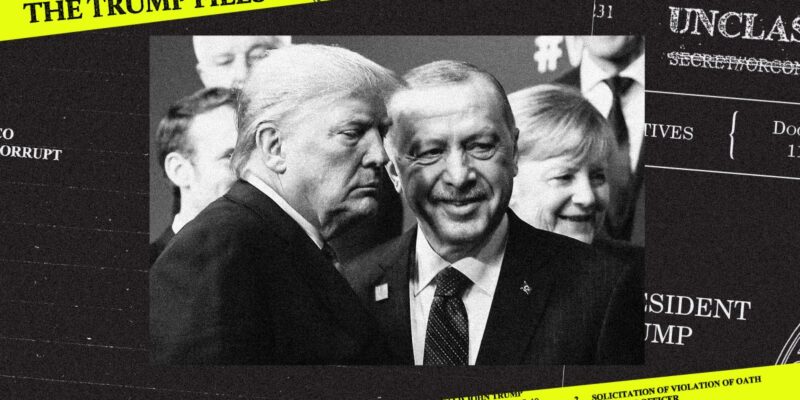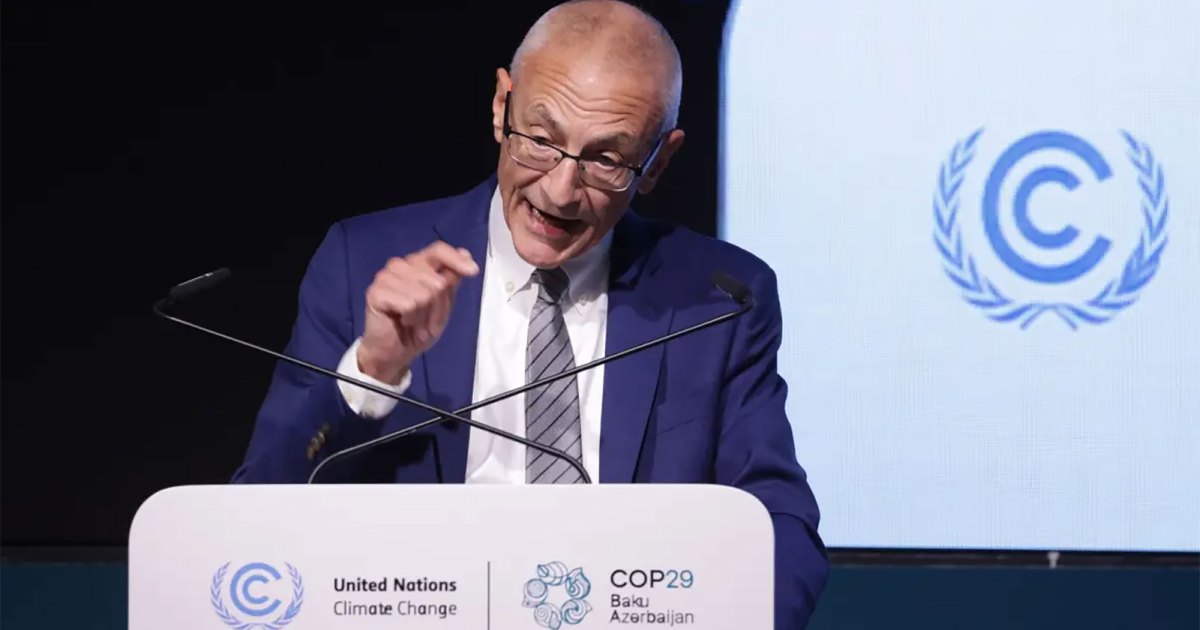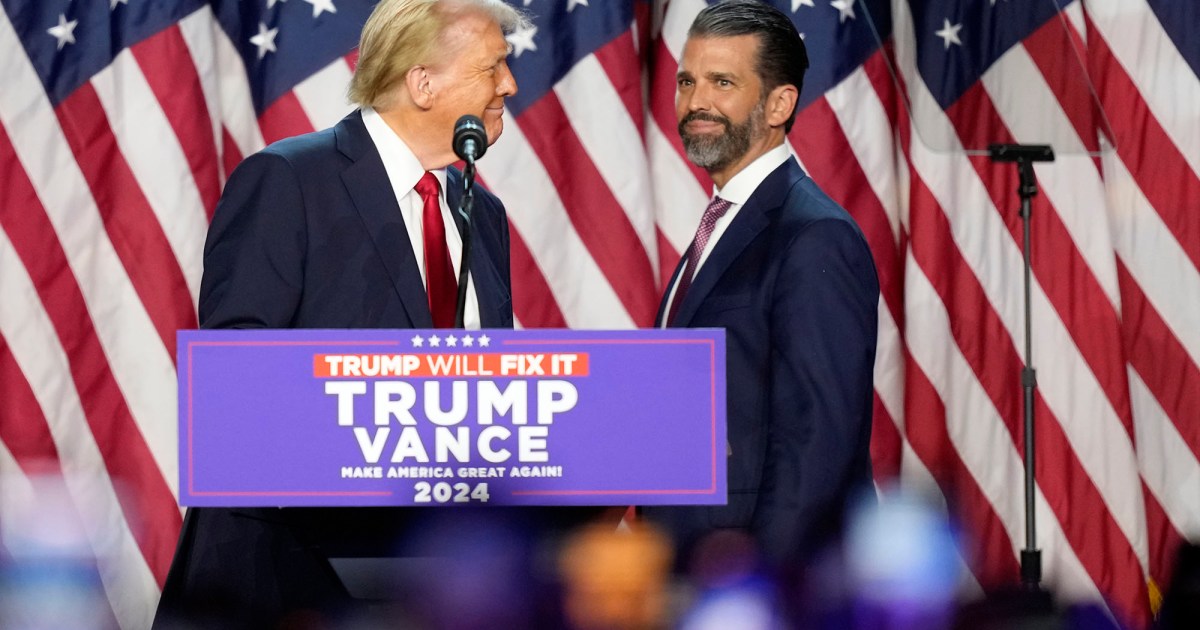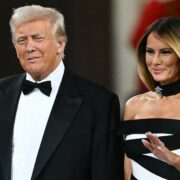
As Donald Trump campaigns to be a dictator for one day, he’s asking: “Are you better off now than you were when I was president?” Great question! To help answer it, our Trump Files series is delving into consequential events from the 45th president’s time in office that Americans might have forgotten—or wish they had.
Five years ago, Donald Trump told Turkish president Recep Tayyip Erdogan to go ahead and invade Syria—an unexpected capitulation to personal pressure from the Turkish strongman that upended US policy, allowing Turkish attacks on Kurdish fighters seen as staunch US allies.
Trump’s green light to Erdogan during an October 6, 2019, phone call forced US troops in Syria to hastily flee from posts near the Turkish border and shocked Washington, drawing bipartisan condemnation of the president’s decision.
The Turkish troops who invaded went on to display “shameful disregard for civilian life, carrying out serious violations and war crimes, including summary killings and unlawful attacks that have killed and injured civilians,” Amnesty International charged. News reports said at least 70 civilians were killed while hundreds of thousands of people were displaced by the invasion.
The okay to invade was one of various ways that Trump helped Erdogan while in office. Trump intervened with the Justice Department to aid a Turkish national bank, Halkbank, which was accused of helping Iran evade US sanctions. Prosecutors have argued the bank helped to finance Iran’s nuclear weapons program. The case against the bank implicated allies of Erdogan, who had authorized the sanctions-evasion scheme, a witness in the case said. Under personal pressure from Erdogan, Trump also pressed his advisers, including DOJ officials, to drop a case against the bank built by prosecutors in the Southern District of New York, according to accounts of former Trump administration officials.
Geoffrey Berman, at the time the US attorney in Manhattan, later said in a book that he received pressure from acting Attorney General Matthew Whitaker in 2018 and that Whitaker’s successor, Bill Barr, pressed him to settle the case on terms favorable to Halkbank. Berman charged that Barr urged him to grant immunity to Turkish officials with ties to Erdogan and suggested hiding those deals from a federal court—a step Berman said would be illegal. Berman and Barr did not respond to requests for comment.
Turkey’s invasion of Syria, oddly, caused problems Halkbank. The criticism Trump faced for allowing Erdogan to invade appeared to embarrass the US president. He responded by attempting to reverse course. In a bizarre public letter, he threatened to “destroy” Turkey’s economy. “Don’t be a tough guy,” Trump wrote. During this spat, Trump and his advisers, including Barr, dropped their opposition to indicting Halkbank. Berman later recounted that Trump’s “falling out” with Erdogan resulted in a “green light to indict Halkbank. And we did it within 24 hours.”
Trump’s approval of Turkey’s invasion of Syria, and his reaction to the criticism it drew, has received limited attention during the 2024 campaign. But it highlights several of Trump’s weaknesses in managing US foreign policy.
Though he casts himself as an effective negotiator, in office Trump consistently accommodated autocrats, offering concessions without winning concomitant benefits, former aides said. “He would interfere in the regular government process to do something for a foreign leader,” John Bolton, Trump’s former national security adviser, told the Times in 2020. “In anticipation of what? In anticipation of another favor from that person down the road.”
Bolton wrote in a book that Trump in 2019 told Chinese President Xi Jinping that his decision to detain Uighur Muslims in concentration camps was “exactly the right thing to do” and urged Xi to “go ahead with building the camps.” In another meeting that year, Bolton wrote, Trump “pleaded” with Xi to help Trump’s electoral prospects by purchasing US soybeans and wheat. Trump apparently hoped the trade would win him votes in rural states hurt by his trade war with China.
This tendency to appease autocrats who flatter him is part of Trump’s personalization of foreign policy, a tendency to make diplomacy about his own interests, rather than those of Americans.
Then there are the conflicts of interest. Trump, in late 2015, acknowledged that “I have a little conflict of interest” in dealing with Turkey, due to his licensing deal that paid him for his name to appear on two glass towers in Istanbul. The 2020 leak of some of Trump’s tax returns revealed that he had in fact received at least $13 million, including at least $1 million while he was the president, through the deal. A man who helped broker Trump’s licensing deal later lobbied the Trump administration on behalf of Turkish interests.
If he is elected again, Trump’s business interests will result in similar conflicts with Vietnam, Oman, and the United Arab Emirates, among others. Through his family, he would also have business-related conflicts with Albania, Qatar, Serbia, and Saudi Arabia, which has paid $87 million to a fund set up by Trump’s son-in-law Jared Kushner.
It is not clear to what extent financial interests—as opposed to flattery or a wish for the approval of autocrats—influences Trump. The problem is that Americans don’t know what interests he follows.
But it is likely that Erdogan expects Trump will be accommodating if he wins, perhaps starting with Halkbank. A federal appeals court recently ruled that the bank’s prosecution can proceed, following the bank’s effort to claim sovereign immunity.
Turkish interests allegedly spent heavily to corruptly influence New York Mayor Eric Adams, who is accused of ordering that Turkey’s 36-story consulate be allowed to open despite safety concerns. If Adams would help fix a fire code issue, what might Trump do for Erdogan?















